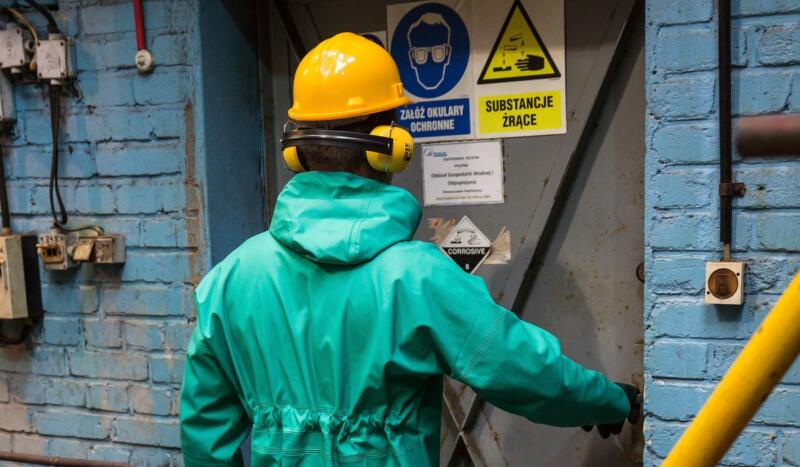Are you passionate about natural sciences and interested in environmental factors impact on human health? Do you want to make a difference and help others by improving the quality of the environment in your community? If so, you might be interested in becoming an environmental health specialist.
An environmental health specialist is a public health professional who consults for clients, educates communities, and enforces regulations that govern a wide range of environmental issues. They work in various industries, such as toxicology, public health and advocacy, environmental research, and medicine. They also have many specialties, such as air pollution, food protection, pesticide management, and sewage disposal.
This article will explain what an environmental health specialist does, what skills and education they need, what salary and job outlook they can expect, and what steps they need to take to start their career.
Table of Contents
What Does an Environmental Health Specialist Do?
An environmental health specialist has many responsibilities, depending on the industry and employer. Some of their common tasks include:
- Screening for potential public health hazards by collecting and analyzing samples from the environment
- Maintaining, preparing, and calibrating the equipment used to gather and analyze environmental samples
- Supervising the proper treatment and disposal of sewage and infectious or dangerous waste
- Designing and monitoring the implementation of well installations and wastewater disposal systems
- Discovering pollution issues and getting stop-action orders
- Developing and overseeing programs that ensure the cleanliness of water supplies, proper disposal of waste, control of pests, like rodents and insects, and prevention of toxic waste contamination
- Advising, consulting and collaborating with medical personnel, such as physicians, about health hazards in the community
- Testifying in court and assisting with drafting regulations and laws
- Assessing the processing, handling and serving of milk and food in order to ensure compliance and identify potential hazards
What Skills Do Environmental Health Specialists Need?
Environmental health specialists need to have a combination of technical, communication, and critical thinking skills. Some of the important skills they need are:
- Knowledge of enterprise resource planning software
- Knowledge and background in natural sciences
- Persuasive communication
- Deductive and inductive reasoning
- Service orientation (focus on helping people)
- Critical thinking and scientific reasoning skills
What Education Do Environmental Health Specialists Need?
According to O*Net education data, 70% of jobs for environmental scientists and specialists require a bachelor’s degree. A bachelor’s degree in environmental health, environmental science, public health, or a related field is typically the minimum requirement for most environmental health specialist positions.
Some employers may prefer candidates with a master’s degree or a doctoral degree in these fields, especially for research or leadership roles. A master’s or doctoral degree can also help environmental health specialists advance their careers or specialize in a certain area.
What Certifications Do Environmental Health Specialists Need?
Some states may require environmental health specialists to be licensed or registered. The requirements may vary by state, but they usually include passing an exam and meeting certain educational and experience criteria.
If you find article useful, don't miss out on the valuable insights and information available in our other related posts:
Additionally, some environmental health specialists may choose to obtain voluntary certifications from professional organizations, such as the National Environmental Health Association (NEHA) or the American Board of Industrial Hygiene (ABIH). These certifications can demonstrate their competence and credibility in the field and enhance their career opportunities.
Some examples of certifications are:
- Registered Environmental Health Specialist/Registered Sanitarian (REHS/RS) from NEHA
- Certified Industrial Hygienist (CIH) from ABIH
- Certified Environmental Health Technician (CEHT) from NEHA
- Certified Professional Environmental Auditor (CPEA) from The Institute of Internal Auditors
What is the Job Outlook for Environmental Health Specialists?
According to BLS projections, employment of environmental scientists and specialists is expected to grow 8% from 2020 to 2030, faster than the average for all occupations. The demand for environmental health specialists is driven by the need to address environmental problems, such as climate change, pollution, waste management, and public health.
Environmental health specialists can find job opportunities in various sectors, such as government agencies, consulting firms, research institutions, non-governmental organizations, and private companies. They can also work in different settings, such as offices, laboratories, field sites, and remote locations.
How to Become an Environmental Health Specialist?
If you are interested in becoming an environmental health specialist in 2023, here are the steps you need to follow:
- Earn a bachelor’s degree in environmental health or a related field: This will provide you with the foundational knowledge and skills you need to pursue this career path. You can choose from various majors, such as environmental science, environmental engineering, public health, or natural sciences.
- Gain relevant work experience. You can gain valuable experience by working as an intern or volunteering for organizations dealing with environmental issues. This will help you develop your practical skills, network with professionals in the field, and learn more about the different aspects of environmental health.
- Consider a master’s degree or a doctoral degree. If you want to advance your career or specialize in a certain area of environmental health, you may need to pursue a graduate degree. A master’s degree can help you gain more expertise and qualify for higher-level positions. A doctoral degree can help you conduct original research and contribute to advancing knowledge in the field.
- Earn certifications. Depending on your state or employer requirements, you may need to obtain certain certifications to work as an environmental health specialist. For example, you may need to pass an exam and meet other criteria to become a Registered Environmental Health Specialist (REHS) or a Certified Environmental Health Professional (CEHP). These certifications can demonstrate your competence and credibility in the field.
- Find a job. You can look for job opportunities in various sectors, such as government agencies, consulting firms, engineering services firms, scientific research organizations, non-governmental organizations, and educational institutions. You can use online job boards, networking events, career fairs, and professional associations to find and apply for jobs that match your skills and interests.
The Bottom Line
Becoming an environmental health specialist can be rewarding for people who want to use their natural sciences knowledge and skills to improve the environment and human health. Environmental health specialists have many responsibilities, skills, and education requirements but also many opportunities and benefits.
If you want to become an environmental health specialist, you need to follow the steps outlined in this article and prepare yourself for the challenges and rewards of this field.





